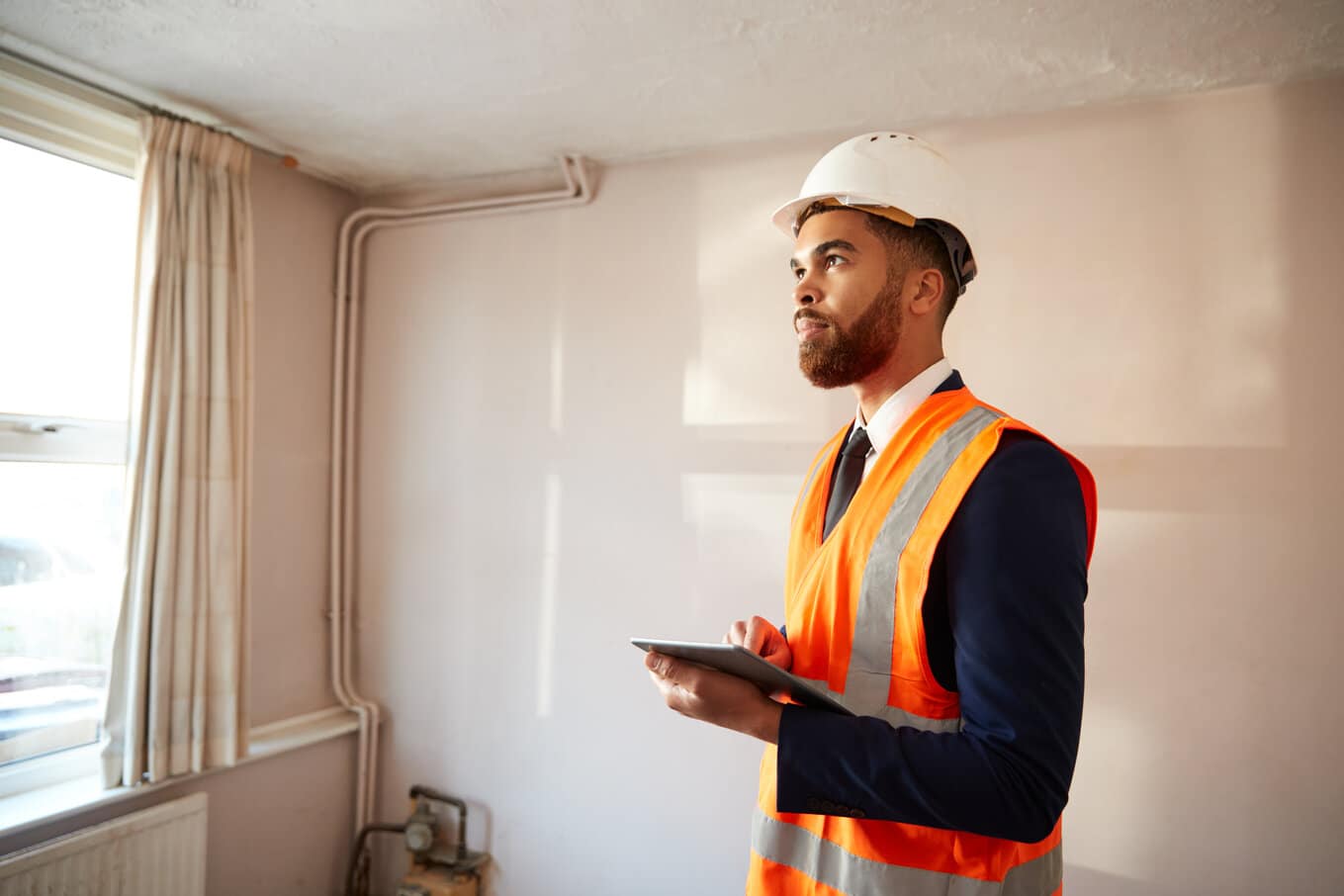Jasmine Birtles
Your money-making expert. Financial journalist, TV and radio personality.


Before you buy your first home, you should think about having a home buyer survey conducted. Home buyer surveys find and document problems with a property. These surveys will indicate the need for future repairs and could even save you some cash!
If you’re still undecided about whether you need a home buyer survey, then give our four-step explainer a read.

Home Buyer Surveys document any damage that can cause problems for the buyers further down the line. Surveyors will flag damage such as damp and subsidence, which you’ll want to know about before you sign on the dotted line.
As a buyer, you may be wondering if you should take on the extra expense. It’s definitely a good idea – and can save you thousands of pounds in the future!
First of all, a home buyer survey will give you some much-needed peace of mind. You’ll find out if there are any problems with the property from an impartial third-party. Then, you’ll be able to budget for any repairs that may be needed in the coming years. This all sounds a bit doom and gloom, so it’s important to remember that a survey may not find any problems with the property, which is a bonus within itself.
If a problem is found within the survey, you’ll be able to reopen negotiations with the seller. This means that the responsibility isn’t on you as the buyer to have the problem fixed. You may reach an agreement that the seller completes any repairs before you move into the property. If the problems are too severe, then you may rethink your purchase of the property entirely. Not only will you save money on a bad sale and repair costs, but you’ll be able to buy a home that’s in good condition later down the line.
The benefits of getting a home buyer survey conducted are numerous. But before you rush out to find a surveyor, you’ll need to get to grips with the details.
There are several types of home buyer surveys that you’ll need to differentiate between:
All surveys are written in plain English, so everyone and anyone can understand them.
On the whole, these surveys will provide back information on the property. They will also estimate the cost of re-building the property (for insurance purposes). They will also assess the cost of damp-proofing, drainage, insulation as well as the condition of the building’s timbers.
The surveys will outline any urgent problems that need attention and major faults.
There are no legal requirements to have a home buyer survey conducted. If you’re buying with a mortgage, your lender will require one before the sale is approved.
However, as we’ve outlined above, a survey can avoid you from buying a home that is riddled with damp and subsidence. So, even if you’re a cash buyer, it’s worth considering getting one. A survey is different from the land searches required for conveyancing – you’ll need to do those via your conveyancing solicitor.
But, if you do chose to get a home buyer survey conducted, you’ll want to have a professional surveyor conduct the survey.
First, you’ll need to make sure that your surveyor is a member of the Royal Institution of Chartered Surveyors. They will have letters such as MRICS or FRICS after their name – and you can check they’re registered on the RICS website.
Before you hire a surveyor, ask to see copies of their past reports. If you do this, you’ll be able to assess whether this surveyor’s information will be useful for your own situation.

The most comprehensive type of home buyer survey is called a building or full structural survey. This survey is suitable for all residential properties, but is particularly important for older buildings and homes that might be in need of a bit more TLC.
The Building Survey describes the condition of each element of the house. It will list the property’s defects, their causes and include guidance on repair work.
These defects will include reporting on: damp, alterations to supporting walls, renovations without planning permission, hazardous materials in the home e.g. asbestos, subsidence, damage to the masonry, roof and timbers. It will also asses whether their are large trees close to the property.
While this home buyer survey is more expensive, it will, like all the others, save you money in the long term by discovering any hidden problems that you may not have been aware of.
Remember! It will not go into detail about things like heating or electrical but a good surveyor will be able to arrange an expert for you.
The price of a home buyer survey will depend on the type of survey you have conducted.
Home buyer surveys start at around £250, but can rise to £1,500.
We recommend using an online comparison tool to make sure you’re getting the best deal.
While it may seem like a extra whack on top of buying a property, you’ll be saving thousands in the long term especially if the survey finds damp or other urgent repairs. It may even save you from buying a house that is in dire need of lots of repairs, which could end up being very costly.
If you’ve found this article interesting, then you might want to give these a read:
